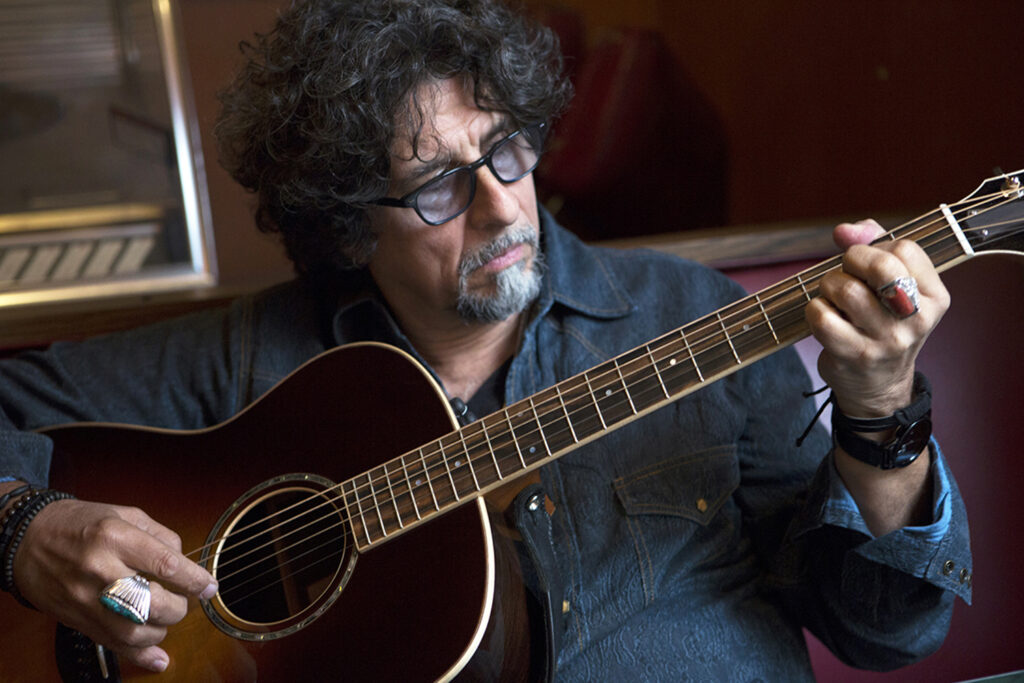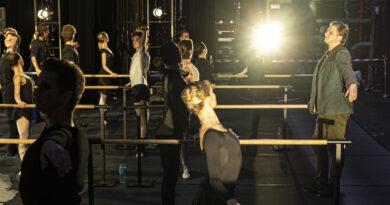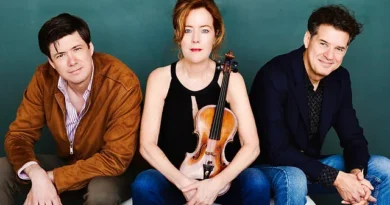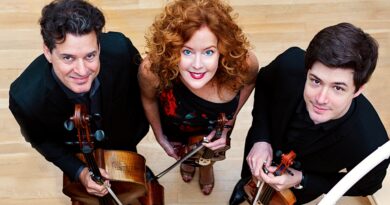LUMINARY: Q&A with Singer/Songwriter Dan Navarro
Navarro will perform at Hey Nonny in Arlington Heights, August 25 and 26.
Saying singer/songwriter Dan Navarro is a versatile artist is like saying the past two years were kind of challenging for live music. It’s an understatement of epic proportions. Navarro is as prolific a master of all trades as they come. In addition to singer and songwriter, he routinely excels as producer, voice-over actor and all-around “road warrior,” all mounting a convincing argument for Navarro as the Hercules of the performing arts.
For years, he worked prolifically as part of the acoustic duo, Lowen & Navarro, releasing 14 albums and performing 1,500 gigs before Eric Lowen’s retirement in 2008 and subsequent passing from ALS in 2012.
As a songwriter, Navarro’s unquenchable drive led him to write or co-write songs for The Bangles, Dave Edmunds, The Temptations, Dionne Warwick, Austin outlaw country legend Rusty Weir, and Pat Benatar (the Grammy nominated “We Belong”), just to name a few. His songs have appeared in films like Deadpool 2, Pitch Perfect 2 and Talladega Nights. He’s also penned songs for TV series This Is Us, American Idol, The Voice, and The Office.
His work as a bilingual voice actor did little to keep him out of the spotlight. He’s sung in multiple Oscar winners, including Encanto (“We Don’t Talk About Bruno”), Coco and Happy Feet. You’ll hear him in the upcoming Puss in Boots 2: The Last Wish, and new Latin-themed Father of the Bride, Sing 2 and The Addams Family, and that’s just dusting the surface. He’s voiced for TV series like The Simpsons, Prison Break and American Dad and films like Pirates of the Caribbean 5, The Book of Life and literally hundreds of commercials for Toyota, Coca-Cola McDonalds, Honda and more.
But perhaps it’s his solo touring that remains the most remarkable component of his incredible portfolio of work. He began touring in 2007 and hasn’t stopped since, promoting acclaimed albums like his heavily lauded 2018 “Shed My Skin.”
Over the course of the pandemic, Navarro launched “Songs From the CoronaZone,” a live stream that ran almost daily for five months, and ultimately logging more than 250 2-hour live streams in 13 months on Facebook Live, Youtube Live, Twitch and Periscope. It was while out on his NomadDan van tour that he first got the inspiration to revisit, if you will, the sound he first captured with seven-time Grammy-winner Jim Scott (Tom Petty, Dixie Chicks, Foo Fighters, Tedeschi-Trucks), and so the idea for his latest album, Horizon Line, was born. Horizon Line is an assertive homecoming for Navarro and Scott, who produced six albums for Lowen & Navarro.
I had a chance to touch base with Navarro in advance of his August 25 and 26 residency at Hey Nonny in Arlington Heights and got a bit of insight into his never-sleep work ethic.
Who and what were your earliest inspirations in music?
I was heavily influenced by my parents’ records, mostly singers from the American songbook before Beatles came out. Top 40 radio of the Sixties was a staple in my teens, and its breadth meant I loved a wide range of music. I was raised on the Mexican border, so Mexican music figured heavily, and I played in symphonic ensembles all through school so classical was also big for me. Frankly speaking (pun intended), it was old Sinatra records that made me want to become a singer. Beatles made me want to write and rock, and 70s Troubadours (CSN, James Taylor, Joni Mitchell, Cat Stevens) made me want to go acoustic.
Much of your career has been marked by versatility. To what do you attribute that innate artistic adaptability most?
Being raised bi-lingual and bi-cultural, exposure to Top 40 when it was broad, and a natural affinity for all things creative, fostered by my parents. If it was artful, I wanted a piece of it.
As a result of that adaptability, you’ve seen many more sides of the music industry than most artists. How does that expanded view impact your approach, if at all, to writing and performing?
I realized the landscape is made up of many colors, some seemingly divergent, so as long as I can own the emotions behind a song or recording, then it was a fit. My records became not “folk” or “Americana” or “rock” records, but “Dan” records. Ownership became job one.
Likewise, your experience as part of a prolific songwriting duo (with Eric Lowen) did that give you a unique view into performing that you brought to your eventual singing career.
I go back to the ownership element. We wrote many kinds of songs, but as long as we delivered them with honesty and ownership, they worked. The second we tried “costumes”, the result was like the dull thud of a counterfeit coin, going “thunk” instead of “ding”. Honesty above all.
Your track record of success speaks uniquely to your affinity for risk-taking. What do you think drives your propensity to move toward risks while others shy away from it?
Unless you try, you can never know for sure what you are capable of. You miss 100% of the shots you don’t take. Safety is kinda boring, and the risks are not as great as they seem. Failure is a teacher, so you may as well risk. That’s where the good stuff hides.
There’s authenticity you bring to your music that listeners readily connect with. To what do you attribute that kind of accessibility?
That accessibility is a product of the honesty, which makes the connection stronger, and the communication two-way. In telling my story, I am actually telling their stories, and they get that. And I get as much from an audience as they appear to get from me. Dropping one’s veneer is simply another form of risk, and the rewards are worth it. Admittedly, I sometimes run into issues with boundaries, but they have become easy to politely enforce. A little courtesy goes a long way.
You don’t put much stock in sleep, I hear. And if the pandemic was any measurement, that notion is true. Your music streamed more than most artists during that troubling time for stage artists. Can you tell me how you pivoted so quickly during what must have been a very confusing time for most artists?
I like being busy. I had already done 30+ shows in 2020 by March, and the prospect of being paralyzed for a year seemed remote. But I figured, streaming is easy, let’s just do something. I started streaming on the first day of lockdown, just one song, then said, “Well, umm, I guess I’ll see you tomorrow.” The I kept stringing “tomorrows” together, organically and went nearly daily at first. I thought it would last a month or two tops. Who knew it would be more than a year? by that time, the audience was hooked and so was I. I just couldn’t stop.
Tell me about this NomadDan tour. How did you come up with that?
It started as a fantasy, a way out during pandemic, encased in a van/cocoon, to start playing parking lots and parks and driveways. I researched vans and got the skinny on how the paradigm worked. By 2021, a friend miraculously appeared with a van to sell, and I jumped. The film NomadLand led to a casual quip by a neighbor, “You’re NomadDan, and the brand was born.
What was the reception like over the course of the pandemic?
The steams during the locked down portion became an elixir for the audience and me, a way to carry on connecting when in-person connection – hell, even a night out for dinner – was impossible. We gathered daily and got to know each other, through a combination of willingness and anything-goes off-the-cuff banter, both directions. A family emerged, and now we are all hooked on one another. The past 18 months have been weirder, distanced, not distanced, masked, not masked, spikes and no spikes. But we gather as we can, and reclaim the camaraderie we developed locked in.
I’d imagine it was cathartic for you. Did it have an impact on your perspective, writing, and ultimate output? Or was it simply a great outlet after all of the quietude of the pandemic shutdowns?
My output became more optimistic, less of the heartbreak songs I have been noted for. More about the journey, less about the outcome. There is something special out there we lost for a time, and we’re going to put ut the effort to grab it, lest it disappear altogether.
Does the kind of persistent energy that drives your work end up creating higher and higher pinnacles for you? It often seems you just keep getting better and better with every new venture.
I guess so. I know I feel better about what I do, and how I do it, than ever before. It’s for others to say whether it is in fact “better”, but I am feeling greater and greater gratitude for the opportunities, and the nuts and bolts of the actual job. I’m a startlingly lucky guy.
Tell me about the new album. Was the creative process any different for you having gone through the pandemic limitations?
Yes indeed. I realized the value of time, and my advancing age, and decided not to muck around overthinking, as I had often done.
What was it like working with Jim Scott on this project, given your prior work with him on the six Lowen & Navarro albums he’s produced? (Was it like coming full circle?)
I knew that Jim works quickly, viscerally, tapping well-honed skills, never overthinking. And his track record of brilliant sounding records was well known to me. I wanted that energy, and the chance to return to an old friend one more time. A sort of homecoming, 32 years after our first album together, 14 years after the last one. With that single decision, everything changed. We recorded “Horizon Line” in 25 studio days, and the pace was energizing. And the sonics still a little mind boggling to me.
What were your biggest inspirations for the output it represents?
The passage of time, and the fact that I still love the work involved in this silly career. So Horizon Line, the song, defined the tone for the whole album – get on with it, love it, learn from it, lather-rinse-repeat.
How much of an opportunity have you had to perform some of the songs from the album live?
I’ve been a busy boy since I started back out in April 2021 (60,000 miles on the van since then), so I’ve been able to play all the songs in a real-world setting, with bands and solo. They appear to be resilient, thankfully.
What will audiences for your Chicago area concert in August get an opportunity to hear?
Most of the songs on the new album, a few choice older tunes, a few sleepers, backed by two guys I’ve played with for 20 years – Rafe Bradford on bass, Larry Beers on percussion. A power trio, go figure.
What piques your interest most when you’re away from the business of music and performance?
Trolling consignment shops in the Palm Springs area to outfit the house I just moved into, in Rancho Mirage CA. It’s twice the size of my last place, and that area is filled with mid-century joys. And baseball.
Will you get a chance to get out and soak in some of the area when you’re here in Chicago?
I’m close with Shelley Howard, the Mayor of Rush Street, so I will definitely get out to hit my favorite Chicagoland haunts. Tavern on Rush is closing temporarily, so I already have a reservation for the coming week. And I’ll hit at least one Cubs game while I’m on town.
Dan Navarro will perform live at Hey Nonny in Arlington Heights on August 25 and 26. Visit heynonny.com to learn more.




